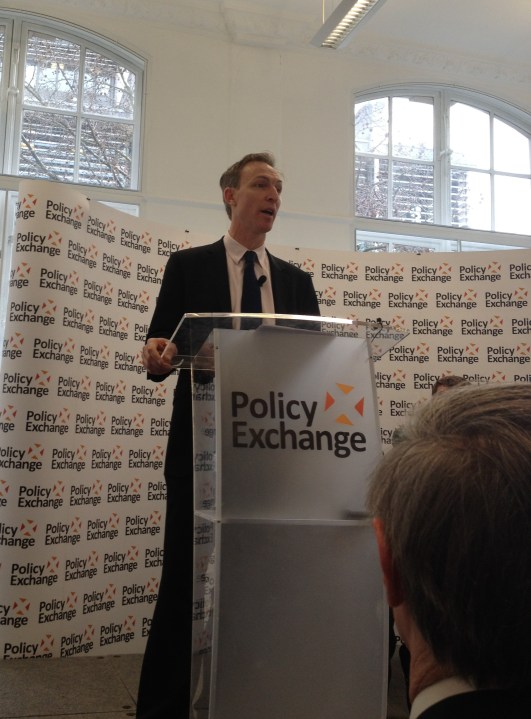Remember when Jim Murphy spoke about defence cuts last month? It was not only a smart refinement of Labour’s fiscal position, but also a preview for the defence review that they’re conducting as an alternative to the government’s SDSR. Well, that review was officially launched this morning, and I was in the audience on reporting duty. Here’s a quartet of quick observations that I bashed out on my phone:
1) Cuts, cuts, cuts. There was, it is true, a greater emphasis on the ‘constrained fiscal circumstances’ in Murphy’s opening remarks than there is the consultation paper that Labour released today. But that emphasis was still striking in itself. Murphy, for instance, spoke of a ‘coalition of cuts’ when describing how countries should work together towards meeting their defence aims on a budget. And he put it even more baldly than that, too, when he said, ‘we’re all going to have to get used to a smaller state’.
2) Target: David Cameron. Judging by Murphy’s comments, Labour are keen to erode any gains that the Prime Minister may have made because of Libya. The shadow deference secretary characterised the messy SDSR process as symptomatic of ‘David Cameron’s occasional ambivalence on defence policy,’ and added that this is ‘in stark contrast to Tony Blair,’ among others. The accompanying consultation document also chips away at Cameron’s promises around the military covenant, claiming that ‘some of the government’s plans are also clearly unfair to service personnel.’ What helps Murphy here is the general disgruntlement of military chiefs: many will agree with his overall point that the SDSR was unsatisfactory, and with his more specific point that our presence in Afghanistan is now ‘calendar led’ rather than ‘conditions led’.
3) Values, not just interests. One of the other speakers, RUSI’s Malcolm Chalmers, highlighted page 23 of the consultation paper, which sets out the ‘values’ that Labour espouse when it comes to defence. This emphasis on ‘values’, he said, contrasts with the ‘interests’-based justifications that now predominate in the case of Afghanistan — i.e. that we’re there to protect British people against terrorism, rather than to build a democracy. Murphy developed this in his own remarks. He warned against politicians letting ‘one-and-a-half unpopular wars’ (Iraq and Afghanistan) undermine the grander ideal that ‘we do have responsibilities beyond our own borders’.
4) The reasonableness of Jim Murphy. Today’s event was a good example of why Murphy is one of the sharpest weapons in Labour’s armoury. Unlike many of his shadow cabinet colleagues, he comes across eminently reasonable and relatively non-tribal — those attacks on David Cameron notwithstanding. It cannot be an accident that this launch was held in the offices of Policy Exchange (‘The Cameroons’ favourite think-tank’™). This is a man who is eager to stride across the centre ground.







Comments